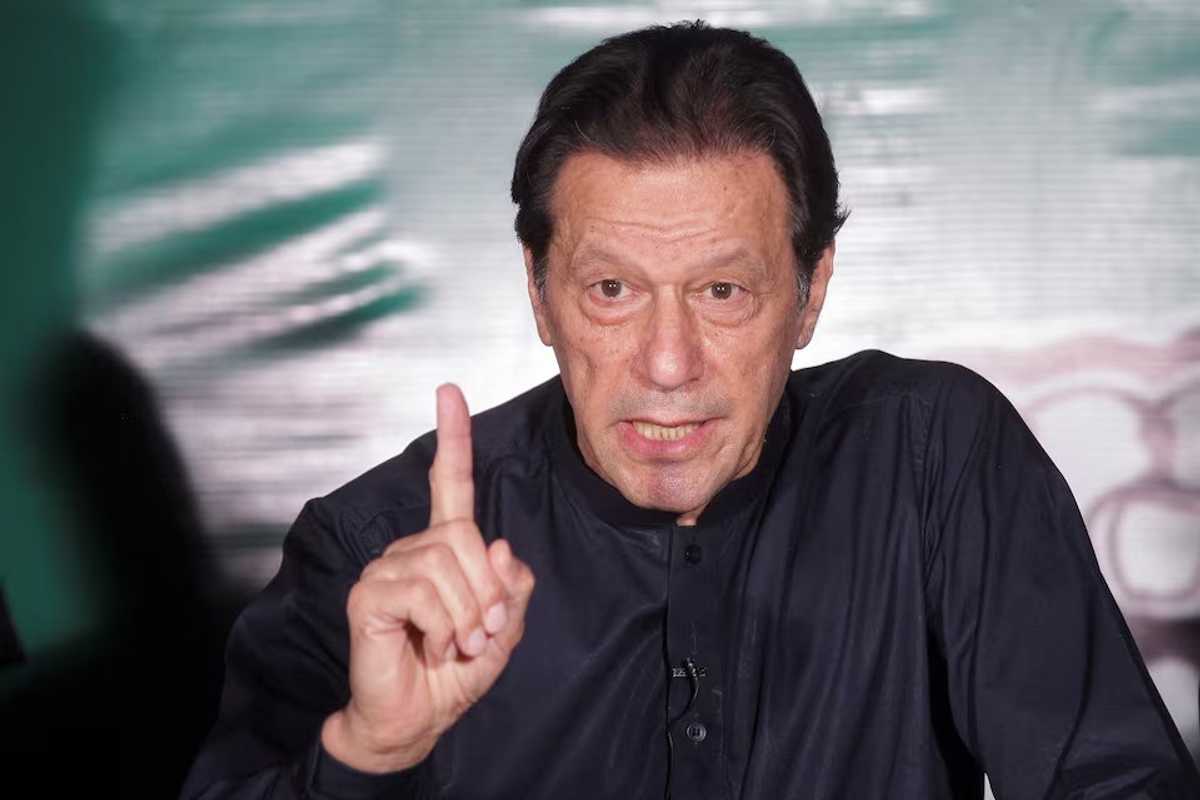Khan’s case transfer sparks controversy in Pakistan court
‘You might as well have bombed my courtroom,’ IHC judge says after abrupt cancellation of ex-PM’s case regarding visitation rights and jail conditions

Asma Kundi
Producer, Islamabad
Asma Kundi is a multimedia broadcast journalist with an experience of almost 15 years. Served national and international media industry as reporter, producer and news editor.

A Pakistani court expressed strong displeasure on Wednesday over the abrupt cancellation of a case listing concerning a contempt petition filed against Adiala Jail officials over the visitation rights and conditions of former Prime Minister Imran Khan.
The cancellation of a case listing means that a scheduled court hearing is removed from the official roster, delaying or transferring the case without proceeding as originally planned.
Justice Sardar Ejaz Ishaq Khan of Islamabad High Court (IHC), who had been presiding over the case, took serious notice of the decision to transfer the matter to a larger bench without his prior approval. He summoned the Deputy Registrar Judicial and the Advocate General Islamabad to explain the move.
During the proceedings, Justice Khan questioned the sudden removal of the case from the court schedule. “How was today’s cause list canceled? Who ordered it?” he asked, demanding an in-person response from officials.
What fueled the controversy?
The IHC has now formed a three-member bench to hear all petitions regarding Imran Khan’s jail conditions and visitation rights. The bench includes Acting Chief Justice Sardar Mohammad Sarfraz Dogar, Justice Arbab Mohammad Tahir, and Justice Mohammad Azam Khan.
However, the decision to reassign the case without informing the original judge has raised concerns about judicial independence. Justice Khan had previously ordered authorities to produce Khan in court, but this was not complied with due to alleged security risks. Instead, a court clerk was sent to Rawalpindi’s Adiala Jail to verify claims that Khan was being denied access to legal counsel.
The issue has gained further attention following Imran Khan’s recent petition to the Supreme Court, challenging the transfer of judges to the IHC—a move he called unconstitutional. Among the transferred judges is Acting Chief Justice Dogar, now presiding over his case.
Mishal Yousafzai, the lawyer who filed the contempt petition, was represented by advocates Niazullah Niazi and Shoaib Shaheen. They argued that despite previous court orders, their client was still being denied access to Khan.
Legal maneuvering or judicial interference?
During Wednesday’s hearing, Deputy Registrar Judicial Sultan Mehmood informed the court that the Chief Justice’s office had ordered the case’s reassignment. However, Justice Khan was unsatisfied with this explanation and questioned its legality.
“Can a Chief Justice transfer a case without the presiding judge’s consent?” he asked. “What if, in the future, a highly corrupt Chief Justice manipulates case transfers? Should such unchecked power exist?”
The judge did not hold back in expressing his frustration. “You might as well have bombed my courtroom instead of undermining its authority like this,” he remarked, criticizing what he described as state interference in judicial proceedings.
“If the state has decided to fight a battle of egos, then my presence here serves no purpose,” he added, warning that such actions could severely damage public confidence in the judiciary.
Advocate Shoaib Shaheen echoed these concerns, stating, “If this is how lawyers are treated outside the courtroom, what must be happening inside the jails to Imran Khan and Bushra Bibi?”
Written explanation demanded
The court has now ordered the Deputy Registrar Judicial to submit a written explanation regarding the case’s cancellation and transfer. The Advocate General has also been directed to clarify under which legal provision the case was moved without consulting the presiding judge.
The hearing was adjourned until Thursday (tomorrow), with Justice Khan warning that continued interference in judicial proceedings could have serious implications for the judiciary’s independence.
“Are we opening the doors to corruption and nepotism?” he asked. “Should judges merely follow the state’s directives instead of delivering justice?”







Comments
See what people are discussing